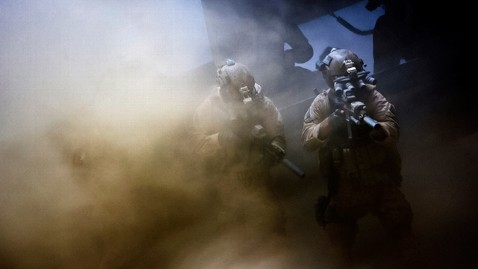CARACAS (Reuters) - Venezuela's top court endorsed the postponement of Hugo Chavez's inauguration this week and ruled on Wednesday that the cancer-stricken president and his deputy would continue in their roles, despite a cacophony of opposition complaints.
Critics had argued the 58-year-old's absence from his own swearing-in ceremony on January 10 meant a caretaker president must be appointed. Chavez has not been seen in public nor heard from in almost a month following surgery in Cuba.
"Right now we cannot say when, how or where the president will be sworn in," Supreme Court Chief Judge Luisa Morales told a news conference.
"As president re-elect there is no interruption of performance of duties ... The inauguration can be carried out at a later date before the Supreme Court."
The decision opens the door in theory for Chavez to remain in office for weeks or months more from a Cuban hospital bed - though there is no evidence he is even conscious.
It leaves the South American country in the hands of Vice President Nicolas Maduro, as de facto leader of the government.
The opposition say that is a brazen violation of the constitution, and that Maduro should leave office on Thursday when the current presidential term had been due to expire.
They say National Assembly boss Diosdado Cabello, another powerful Chavez ally, should take over the running of the country while new elections would be organized within 30 days.
Maduro would be the ruling Socialist Party's candidate.
Government leaders insist Chavez, 58, is fulfilling his duties as head of state, even though official medical bulletins say he suffered complications after the surgery, including a severe lung infection, and has had trouble breathing.
His resignation or death would transform politics in the OPEC nation, where he is revered by poor supporters thankful for his social largesse, but denounced by opponents as a dictator.
RALLY PLANNED FOR THURSDAY
Opposition leader Henrique Capriles, who lost a presidential election to Chavez in October, said the Supreme Court had become politicized under the socialist leader's administration.
"The tribunal gave an interpretation (of the constitution) in order to solve a problem that the government has," Capriles told a news conference.
Moody's Investors Service warned on Wednesday that Venezuela's sovereign credit rating, already at junk status, faces short-term risks over any political transition.
Prices of Venezuela's widely traded bonds have soared lately on Chavez's health woes, but dipped this week as investors' expectations of a quick government change apparently faded.
The president has undergone four operations, as well as weeks of chemotherapy and radiation treatment, since being diagnosed with an undisclosed type of cancer in his pelvic area in June 2011.
He looked to have staged a remarkable recovery from the illness last year, winning a new six-year term at a hard-fought election in October. But within weeks of his victory he had to return to Havana for more treatment.
The government has called for a huge rally outside the Miraflores presidential palace in Caracas on Thursday, and allied leaders such as Uruguay's Jose Mujica, Bolivia's Evo Morales and Nicaragua's Daniel Ortega have said they will visit - despite Chavez's absence.
Argentine President Cristina Fernandez, a close friend, has announced plans to visit Chavez in Cuba on Friday.
The unprecedented silence by Chavez, who is well known for his hours-long rambling speeches, has convinced many Venezuelans that his 14 years in power may be coming to an end.
Unlike after his previous operations in Cuba, no photographs have been published of him recuperating, and social media in Venezuela is buzzing with rumors he is on life support.
Cabello, the pugnacious head of the National Assembly, has repeatedly ruled out taking over as caretaker president to order a new presidential election, saying Chavez remains in charge.
"Tomorrow we will all go to the Miraflores palace," he told a televised Socialist Party meeting on Wednesday. "The people will be invested as president. We are all Chavez!"
(Additional reporting by Marianna Parraga, Diego Ore and Enrique Andres Pretel; Editing by Andrew Cawthorne and Eric Walsh)











